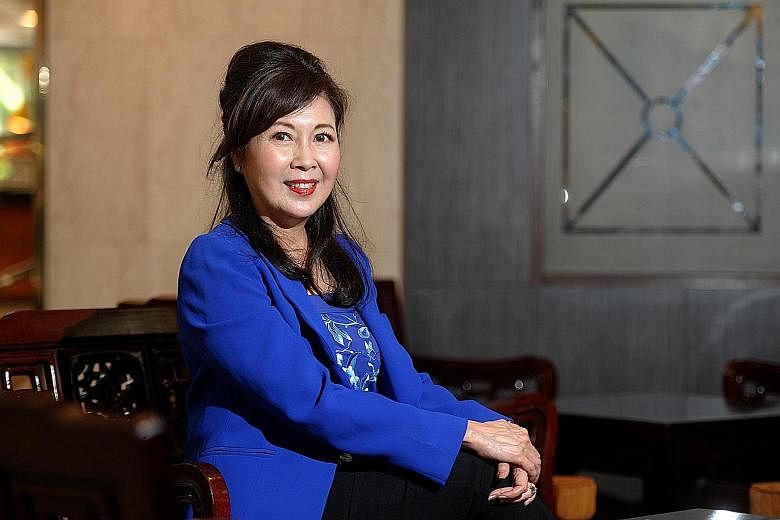During the first US presidential debate last week, Republican candidate Donald Trump interrupted his opponent Hillary Clinton so many times, people lost count. By some measures, it was 51 times over 90 minutes.
For Mrs Laura Hwang, it was all too familiar an occurrence.
In Singapore, she too has found herself being cut off and talked over - by both men and women, whether in meetings at the workplace or during conversations.
It is in line with research which has found that women are interrupted far more than men.
But Singapore's representative for women's rights to the Asean Commission on the Promotion and Protection of the Rights of Women and Children (ACWC) has her own way of coping.
Like Mrs Clinton, Mrs Hwang, who is in her 60s, said she does not let the interrupters put her down.
She continues speaking to make her point. "I don't let them faze me."
Mrs Hwang is a long-time advocate for women's rights. On Friday, she was among the speakers addressing 220 people from Singapore and overseas at the 22nd Federation of Asia-Pacific Women's Association convention.
She spoke about narrowing the gender gap at work.
She was the first of a handful of women recruited in the male-dominated financial sector in the 1970s.
In her 17 years there, she rose through the ranks, as an officer and manager in banks.
In 1984, she was the first Singaporean and woman to be made managing director of international merchant bank Arbuthnot Latham Asia. Later, she developed a private investment firm.
Outside of the financial world, she has been involved in community service, including on women's well-being and development.
She was president of the Singapore Council for Women's Organisations from 2010 to 2014. In her time, she motivated changes to the Women's Charter, improving legal and support systems for divorced women and families.
"Women in power can make a difference to other women," she said.
At ACWC, she helps develop policies and programmes to promote and protect the rights of women and children. She was part of a review committee that recently put in place an Asean regional report on human trafficking.
"The data on Singapore is quite good in that we have passed various legislations," she said. "We have moved from the previous stance where we were looking at the victims as offenders. Now the move to punish the perpetrators has been strengthened."
To empower more women, her "one secret wish" is to have childcare facilities built in "major working hubs" - meaning business districts where offices are clustered.
"At the moment our childcare facilities are all near residential areas. What I would like to see is childcare facilities in the major working hubs. That will enable parents to take their children there and pop in on the very young ones during their work days.
"It should be a policy that every big work hub should have a childcare facility."
She acknowledged the dismal truth, however, that there are not enough women at senior management level to take up the cudgels for other women.
"We are really below the global average for the number of women on corporate boards," she said. "Our numbers are low even in the Asian context."
According to a report released last year by Deloitte Global, women take up 9 per cent of board seats here, compared to the global figure of 12 per cent.
She said that while Singapore has made tremendous strides in legislation and infrastructure, "there are still gaps that have to be addressed".
"There are glass ceilings for everyone according to their abilities," she said. "But for women, there are also sticky floors that make them hesitate to be ambitious."
She said that for women who take on the traditional roles of housekeeping and home care, work can be a juggling game. "You can only keep so many balls up in the air at the same time. And if you are not a natural risk-taker, you are not going to juggle so many. You just stick to the ones you know you can manage."
When asked how she coped with gender discrimination at the workplace, she said the key is not to look at it as a hindrance. "The less you focus on a problem, the more you can just swim your way through it."
She recounted how she once went swimming off the Malaysian island of Rawa. At one point, her friends on the beach started waving and shouting to her.
"I thought we were having a great time and I was waving back. Later they said they were trying to warn me of two sea snakes swimming underneath.
"I was oblivious and had a wonderful time," she said with a chuckle. "Life is like that. Sometimes, when you don't perceive the danger, you will get by."

